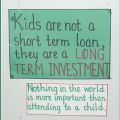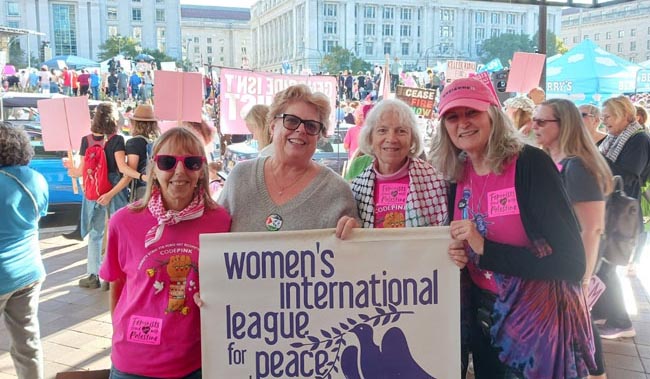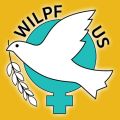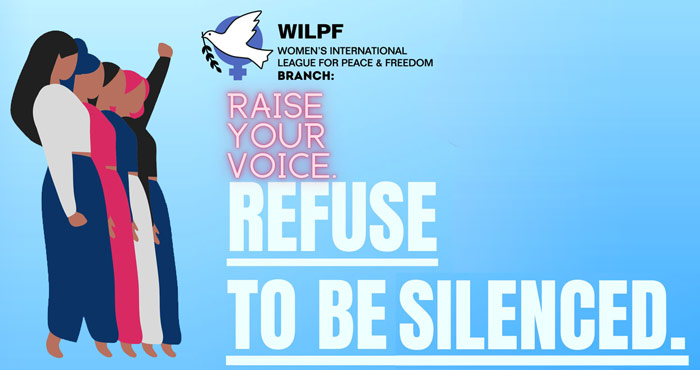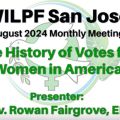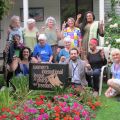Posters in a school in Sobantu, in the Kwa-Zulu Natal province, South Africa: 2006. Used with photographer’s permission.
by Office of the President and WILPF US Boston
November 2024
Help Put Your Branch’s Focus on the “WILPF Map”!
Branch members, what is one issue that is a focus of activism for your branch? Is your branch ready to elevate this issue to national WILPF attention? There’s now a special Presidential Collaboration Initiative to help you accomplish that.
As WILPF President, I can help you access national WILPF tools to publicize your branch’s description and analysis of an issue. With the support of WILPF US, we spread the word about the political and civic actions you recommend to WILPFers.
The inaugural edition of this Collaboration Initiative coincided with both the 13th anniversary of Occupy Wall Street on September 17th and the start of the school year.
The Fund Schools First: Calling for a Commitment to the Future essay, available on our website here, is certainly longer than what most branches are likely to offer, but it gives a great example of how branches can make the connections between and among issues.
Building the Future: Uniting for Every Zip Code in America
Here is a brief introduction to that essay, and we encourage you to dive deeper reading the long-form piece:
Across America, we’ve seen it time and time again—communities left behind, students blamed for failings that aren’t their own, and city leaders refusing to put education first. Nowhere is this clearer than in Brockton, Massachusetts. It’s a story that mirrors the systemic racism and neglect in Black and brown communities across the country. But it’s also a story of how we can come together and fight for our children’s futures. After all, all adults can contribute to caring about all children.
Brockton, a city just outside of Boston, has become a case study of what not to do when it comes to funding public schools. As the city set its budget, schools were underfunded at the exact moment they needed more support than ever. Students—recovering from a global pandemic that hit Black and brown communities the hardest—were left without teachers, warehoused in cafeterias and classrooms with no guidance or structure. And when the media swooped in, the narrative was one of “violent” and “out-of-control” students, when the reality was far more sinister.
The story of Brockton isn’t unique. It’s happening in urban communities all across the country, where schools in predominantly black and brown neighborhoods are underfunded, while wealthier districts thrive. We can come together—no matter our race, class, or political affiliation—and demand that every zip code in America is treated equally when it comes to education. If we can’t unite around supporting children, what can we unite around?
As you can see from this inaugural example, it’s possible—and very much in the traditions of WILPF—to bring in and connect a number of issues, even when highlighting a single issue.
Please feel free to contact me if you have an idea for your branch’s collaboration project—by email (President@wilpfus.org) or phone (after 9:30 a.m. PDT: 916-739-0860).

